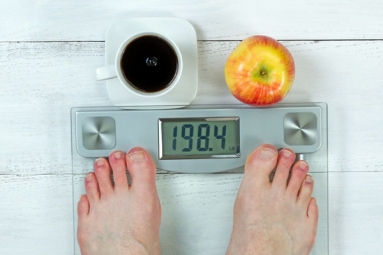
(Image source from: Canva.com)
Surprisingly, even foods that are good for you can cause bloating in some individuals. Although these items are full of vitamins, fiber, and helpful substances, they might also have specific sugars, starches, or fibers that are difficult for the body to break down. These undigested elements travel to the large intestine, where they are broken down by gut bacteria, resulting in gas and bloating. Foods like cruciferous veggies, legumes, and certain fruits can cause bloating for those with sensitive digestive systems or conditions like IBS. This doesn’t mean these foods are harmful; it just indicates that moderate consumption or some adjustments in preparation might be beneficial. Below is a list of some healthy foods you might want to limit to reduce bloating.
Broccoli: This food is full of vitamins and antioxidants and is considered highly nutritious. However, it falls under the cruciferous category, which has raffinose, a complex sugar that can be hard to digest. When it gets to the colon, gut bacteria break it down, causing gas and bloating.
Cauliflower: Cauliflower is high in fiber and nutritious but like broccoli, it has complex carbohydrates and sulfur-containing compounds. These can ferment in the intestines and lead to gas, especially if eaten raw or in large amounts.
Lentils: Lentils are a great source of plant-based protein and fiber. However, their sugars are not easily absorbed in the small intestine, making them a common reason for bloating for those who are sensitive.
Beans: Varieties like kidney, black, or chickpeas are full of fiber and protein, but they also have resistant starch. These can ferment in the gut and may create a lot of gas unless they are soaked or cooked properly.
Onions: While they are low in calories and rich in antioxidants, onions contain fructans, which are a type of fermentable carbohydrate. These can lead to bloating and digestive issues, particularly in individuals with IBS.
Garlic: Garlic has the same fructans as onions. Even a small amount of raw garlic can result in bloating and discomfort for some. Cooking it may slightly lessen its bloating effects.
Apples: Eating an apple daily can be good for health, but it may also contribute to bloating because of its fiber, fructose, and sorbitol content. These natural sugars and sugar alcohols can be poorly absorbed, leading to fermentation and gas.
Quinoa: While it is a popular gluten-free superfood, quinoa contains saponins and fiber that may irritate the gut lining and lead to gas or bloating in some, especially if not rinsed well before cooking.
Avocados: Avocados are rich in healthy fats and nutrients, but they also have high levels of sorbitol, a sugar alcohol that can ferment in the colon, potentially causing bloating or diarrhea in those who are sensitive if they eat too much.
Greek yogurt: It is high in protein and probiotics, but Greek yogurt can cause bloating for those who are lactose intolerant or sensitive to dairy. Although it has less lactose than regular yogurt, it can still cause discomfort.
Reduce these foods today to promote better gut health and lessen bloating.













